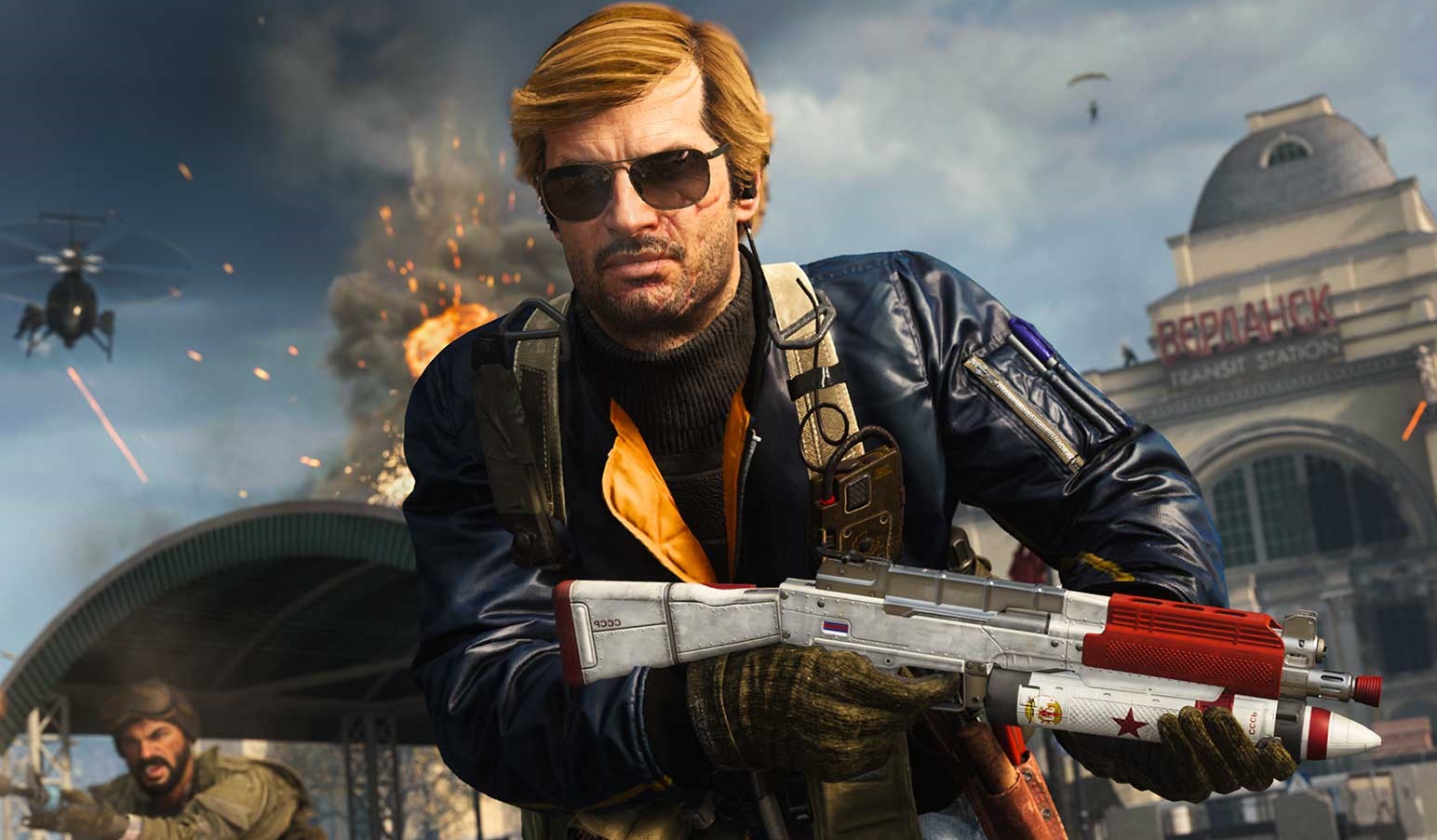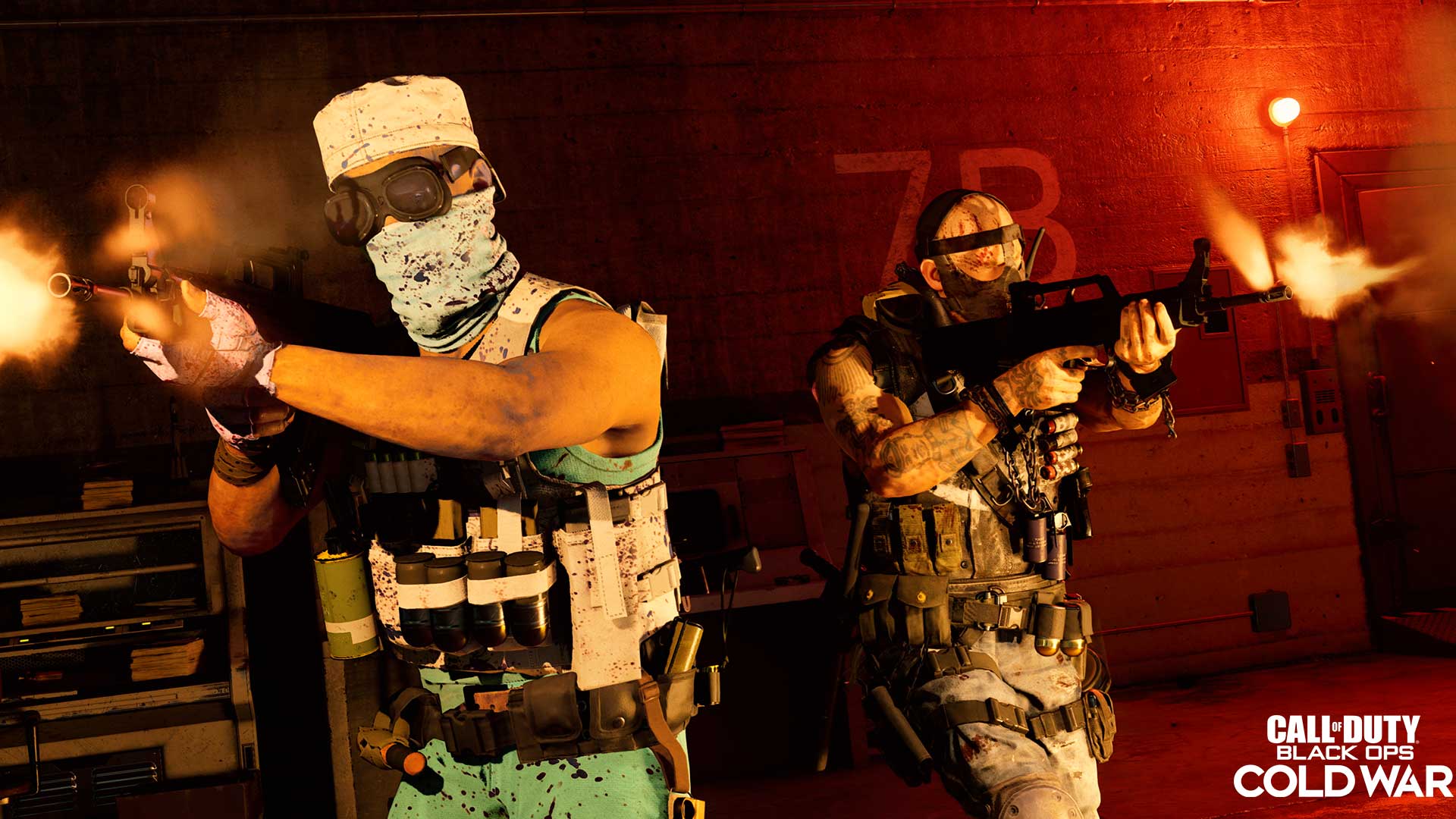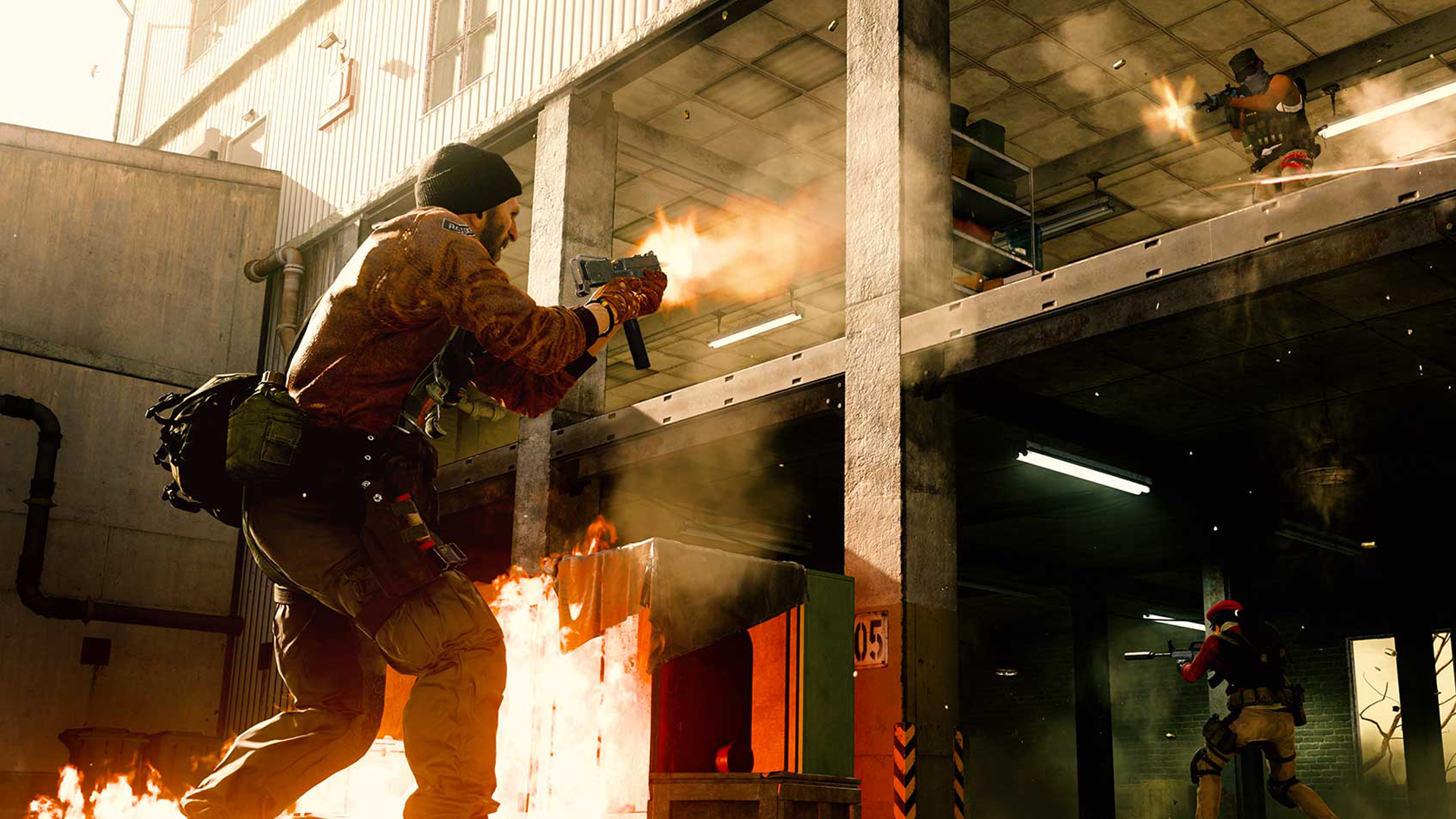Warzone has streamlined battle royale to the point of total transformation
With its latest map, Warzone lands further than ever from the genre that spawned it.

On Rebirth Island, named a century before it became a multiplayer map in Call of Duty, players are reborn time and time again. So long as a single soldier remains alive in a squad, and they can hold out for under a minute, their teammates will fall straight back out of the sky like newborns dropped by passing storks.
That's Resurgence mode, built around a respawn mechanic that would be anathema to Brendan Greene, inventor of the battle royale format as it first emerged in PUBG. Back then, battle royale felt fresh because it introduced a new permanence to competitive shooting. Clinging to a single life over the course of a match was thrilling since every action was imbued with long-term consequence. Players made very different decisions when they were facing the loss of the last 30 minutes, rather than a 30 second respawn timer. They became more thoughtful, less certain; better planners who executed with care.
Warzone copied the formula, but diluted it—creating the gulag, which reduced the fear of death by approximately half, depending on how handy you are with a Magnum. And it tied extra lives to the in-game economy, allowing cash-rich teams to call back dead players as many times as they could afford. Those changes proved popular, narrowly edging out drinking water as the most common pastime of March last year, and so Resurgence takes matters further still.
It's not just time of death, if you'll excuse the pun, which has been reduced on Rebirth Island. Infinity Ward and Raven refer to the map as a 'mini royale', primarily because its real estate is so small. Look away from the screen to sip a cup of tea during deployment and you're liable to overshoot the place, landing on its far coast like a beached whale with a handgun. Then there are the player numbers, cut to just 40, and the circle, which completely covers what paltry land there is within quarter of an hour.
The question is how much battle royale can shrink before it's no longer recognisable.
The effect, unsurprisingly, is a total change in behaviour. Players sprint and twitch their guns the way they do in classic CoD, alive to the threats that abound in adjacent rooms as teams struggle to claim a tiny patch of ground for themselves. They leap into risky encounters rather than let a squad pass, knowing they've little to lose if the fight goes badly. Even outside Resurgence mode, the developers subject the island to regular jailbreaks, in which they give every player waiting in the gulag a second chance at deployment, dotting the sky with parachutes.
Combat range tends to be ten metres or less, since the island is stuffed with building cover, eschewing the open fields of Verdansk. The verticality in particular is a treat; on one occasion I spotted a bounty target as they climbed down the hatch of a roof, and swept in from above to collect. With fewer clear sightlines, however, the final and most exciting phase of the circle tends to go on for longer. The close quarter encounters suit Black Ops: Cold War's signature weapons, the Milano and the Mac, both Scarface submachine guns straight out of Miami Beach.

For many Warzone players, this has been their first taste of CoD in its original flavour: hectic, sudden, and best played with an unhealthy disregard for personal safety. Activision, meanwhile, has a clear incentive to hook them on it: you don't need to be a CFO to see how Rebirth Island might be a free gateway drug for paying CoD multiplayer. The step from Resurgence to Cold War's 40-player Dirty Bomb mode is almost imperceptible: they're played at the same scale, with a significant overlap in rules. Parachuting and gear collection has crept into CoD proper, weakening the membrane between the main game and its battle royale spin-off.
Keep up to date with the most important stories and the best deals, as picked by the PC Gamer team.
The transition isn't for everyone, however. As Infinity Ward and Raven pull battle royale back to CoD's smaller and more frenzied comfort space, they risk ruffling the feathers of players native to Verdansk. The grumbling over integration has shown that not all players who love Warzone love classic CoD, and vice versa—some would rather the two didn't even share menus. For a subsection of Warzone devotees, Rebirth Island will be a confusing and unattractive aberration.
You could argue that Resurgence is simply the latest point along a curve that began with the birth of battle royale. Even Greene was simplifying and compressing when he designed PUBG, reducing the hours of tense exploration in survival games like DayZ into half an hour of purposeful gear collection and murder. The question is how much battle royale can shrink before it's no longer recognisable, becoming something else entirely. Perhaps the next zeitgeist shooter genre is already with us; we just don't have a name for it yet.
Jeremy Peel is an award-nominated freelance journalist who has been writing and editing for PC Gamer over the past several years. His greatest success during that period was a pandemic article called "Every type of Fall Guy, classified", which kept the lights on at PCG for at least a week. He’s rested on his laurels ever since, indulging his love for ultra-deep, story-driven simulations by submitting monthly interviews with the designers behind Fallout, Dishonored and Deus Ex. He's also written columns on the likes of Jalopy, the ramshackle car game. You can find him on Patreon as The Peel Perspective.


